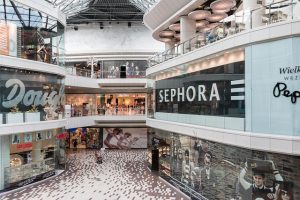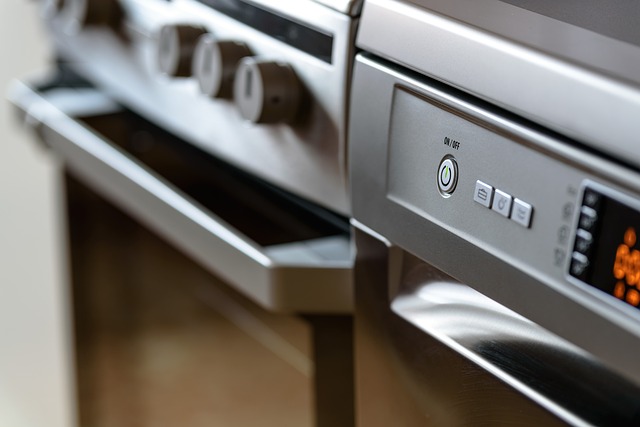By Glen Luke Flanagan, Deputy Editor at USA TODAY Blueprint
At a time where inflation is top of mind and people keenly remember the economic uncertainty of the coronavirus pandemic, getting a fair deal when you make a purchase is as important as it’s ever been. A new study from USA TODAY Blueprint reveals the top 25 brands American shoppers feel offer fair deals, as well as the best deals respondents say they’ve received.
Top 5 Brands Overall
For this study we surveyed 1,251 American consumers ages 18 to 58 about their experiences with 100 high-profile brands in four major product categories and 10 retail store brands.
Roughly 70% of respondents felt that pricing was fair across all brands evaluated, but the fairest brands had significantly higher satisfaction rates. Here are the top five brands to emerge:
- Sharpie: About 89% of respondents feel that Sharpie is fair. The iconic Sharpie marker was introduced in 1964 and was the first pen-style permanent marker.
- Anker: About 89% of respondents feel that Anker is fair. Anker was founded in 2011 with the aim of providing affordable chargers and laptop batteries. Now, the company is the top-ranked electronics brand in our study, and employs thousands of people.
- Honda: About 88% of respondents feel that Honda is fair. The Honda Motor Co. Ltd. was incorporated in Japan in 1948.
- Toyota: About 88% of respondents feel that Toyota is fair. Toyota opened its first U.S. office in Hollywood in 1957.
- Dove: About 88% of respondents feel that Dove is fair. Dove launched in the U.S. in 1957 with a beauty cleansing bar.
Top Brands By Category
Our research found that of the four categories considered, people tended to judge electronics and home and appliances as most fairly priced — at about 72% of respondents in those two categories. By contrast, apparel averaged 68% and automotive brands averaged 67%.
Here are the top five fairest brands in each of the four categories our research considered:
- Apparel: The top five apparel brands, in order, are Adidas (84%), New Balance (84%), Old Navy (84%), Converse (82%) and Columbia (79%).
- Automotive: The top five automotive brands, in order, are Honda (88%), Toyota (88%), Nissan (78%), Chevrolet (76%) and Acura (76%).
- Electronics: The top five electronics brands, in order, are Anker (89%), Amazon devices such as Kindle and Echo (86%), Logitech (85%), LG (81%) and Google devices such as Pixel and Nest (80%).
- Home and appliances: The top five home and appliance brands, in order, are Sharpie (89%), Dove (88%), Rubbermaid (87%), Instant Pot (87%) and Black & Decker (85%).
Full List of Top 25 Fairest Brands In America
Here’s the complete list of the top 25 brands American shoppers feel offer the fairest deals, as well as the percentage of respondents who consider that brand fair and how we categorized each brand for our research:
- Sharpie (89%), home and appliances.
- Anker (89%), electronics.
- Honda (88%), automotive.
- Toyota (88%), automotive.
- Dove (88%), home and appliances.
- Rubbermaid (87%), home and appliances.
- Instant Pot (87%), home and appliances.
- Amazon devices such as Kindle and Echo (86%), electronics.
- Logitech (85%), electronics.
- Black & Decker (85%), electronics.
- Adidas (84%), apparel.
- New Balance (84%), apparel.
- Old Navy (84%), apparel.
- Coleman (83%), home and appliances.
- Cuisinart (83%), home and appliances.
- Converse (82%), apparel.
- Phillips (82%), home and appliances.
- LG (81%), electronics.
- Google devices such as Pixel and Nest (80%), electronics.
- IKEA (80%), home and appliances.
- Hamilton Beach (80%), home and appliances.
- Burt’s Bees (79%), home and appliances.
- Columbia (79%), apparel.
- Skechers (79%), apparel.
- Vizio (79%), electronics.
Whatever type of purchase is being made, we recommend using one of the best credit cards to take advantage of either rewards or a 0% introductory APR whenever possible and make a good deal even better.
How Prices Impact Behavior
While price is one of the key factors impacting whether people feel they are getting a good deal on a purchase, it’s not the only one. Quality matters too.
“Beauty is in the eye of the beholder, and so is the notion of a fair deal,” said Sean Snaith, director of the University of Central Florida’s Institute for Economic Forecasting. “Price in and of itself doesn’t guarantee the notion of a fair deal, as most people who have made a purchase from Wish.com could tell you that.”
However, price is certainly top of mind. We found that 43% of consumers are angry about pricing on at least a weekly basis.
If consumers opt to pay a high price despite being unhappy about it, it’s typically because of the quality of the product (41%), an urgent situation or no patience to shop around (23%), no other options (20%), the uniqueness of the product (11%) or because the brand aligns with the consumer’s values on factors such as environmental impact or labor practices (4%). A mere 1% opted out of these factors by selecting “none of the above.”
Asked about the best deals they ever got, survey respondents cited (in this order) televisions, computers, shoes, smartphones, gaming consoles, jackets, headphones, tablets, shirts, and vacuums.
About the author
 Glen Luke Flanagan is a deputy editor on the USA TODAY Blueprint credit cards team. Prior to joining Blueprint, he served as a deputy editor on the credit cards team at Forbes Advisor, and covered credit cards, credit scoring and related topics as a senior writer at LendingTree.
Glen Luke Flanagan is a deputy editor on the USA TODAY Blueprint credit cards team. Prior to joining Blueprint, he served as a deputy editor on the credit cards team at Forbes Advisor, and covered credit cards, credit scoring and related topics as a senior writer at LendingTree.
Related Articles

The Rise of Digital Experience Platforms (DXPs) in Software Development
Software development is evolving, as Digital Experience Platforms enable the delivery of a personalised digital cross-channel experience. A DXP delivers integrated content, Artificial Intelligence, and low-code rapid application development tools. It streamlines the work of developers as well as marketers.

7 Employee Benefits That Can Help Your Business Increase Staff Retention
With so many businesses vying for the attention of skilled job candidates, it’s becoming more important to look for ways to make your offerings more appealing by adding unique perks that not every employer does.

How Retailers Can Prepare for the Summer 2025 Shift
Rather than focusing on isolated touchpoints or departmental KPIs, journey management provides a way to understand where the most critical pain points lie and how to resolve them systematically across the business.

Retailers Are Drowning in Data – Journey Management Could Be the Lifeline
Rather than focusing on isolated touchpoints or departmental KPIs, journey management provides a way to understand where the most critical pain points lie and how to resolve them systematically across the business.



 for the latest news and job opportunities in retail tech
for the latest news and job opportunities in retail tech 